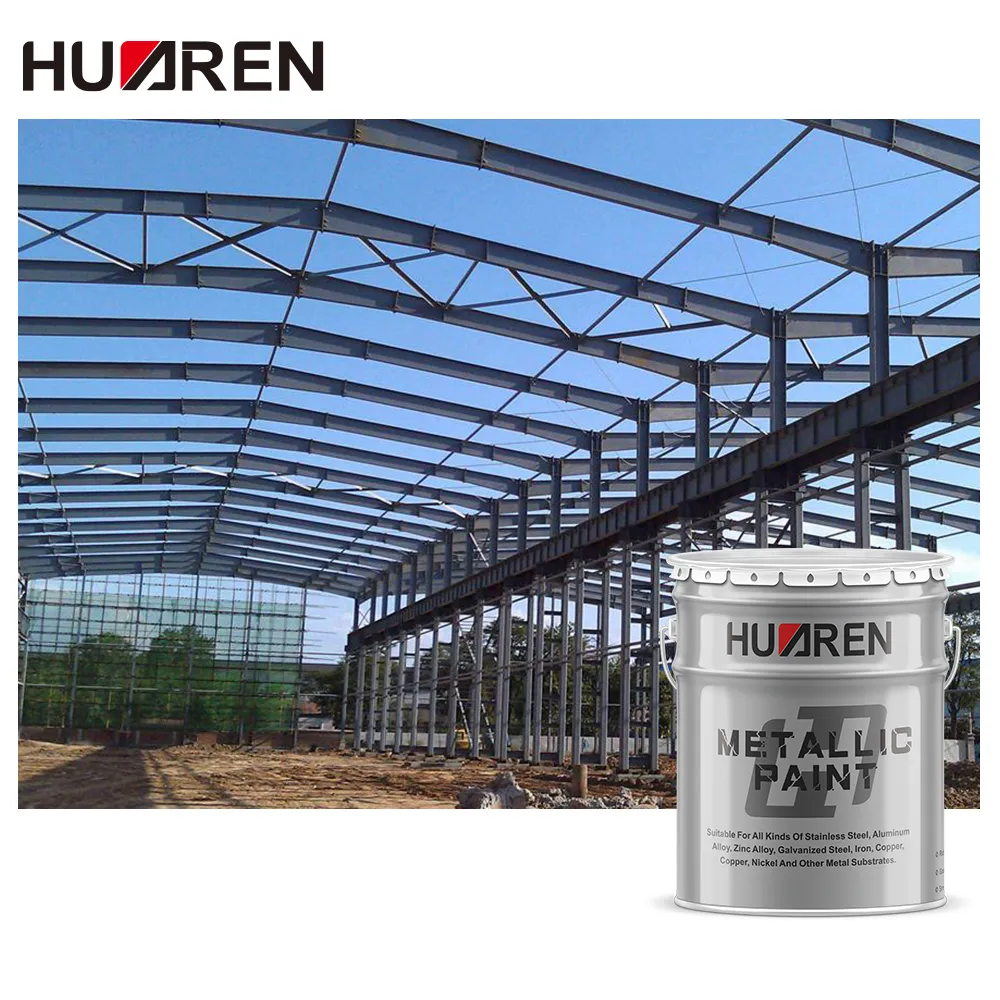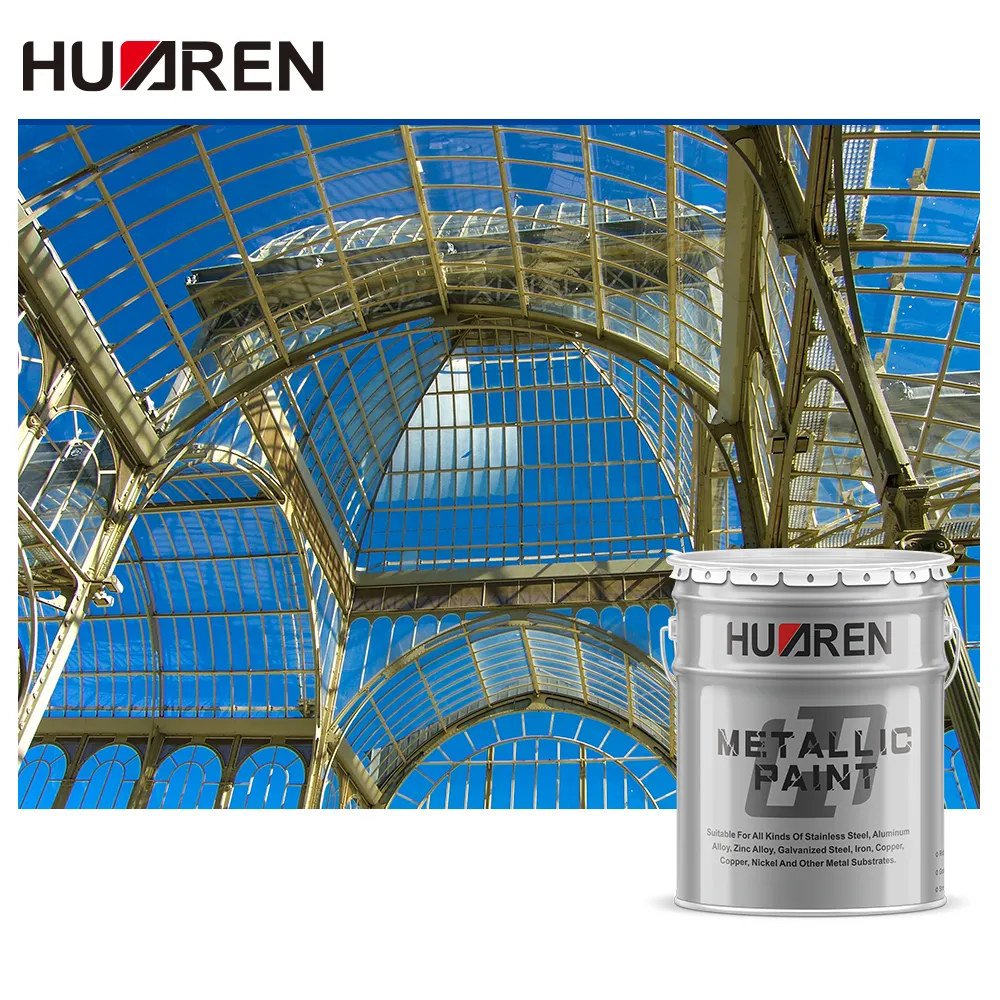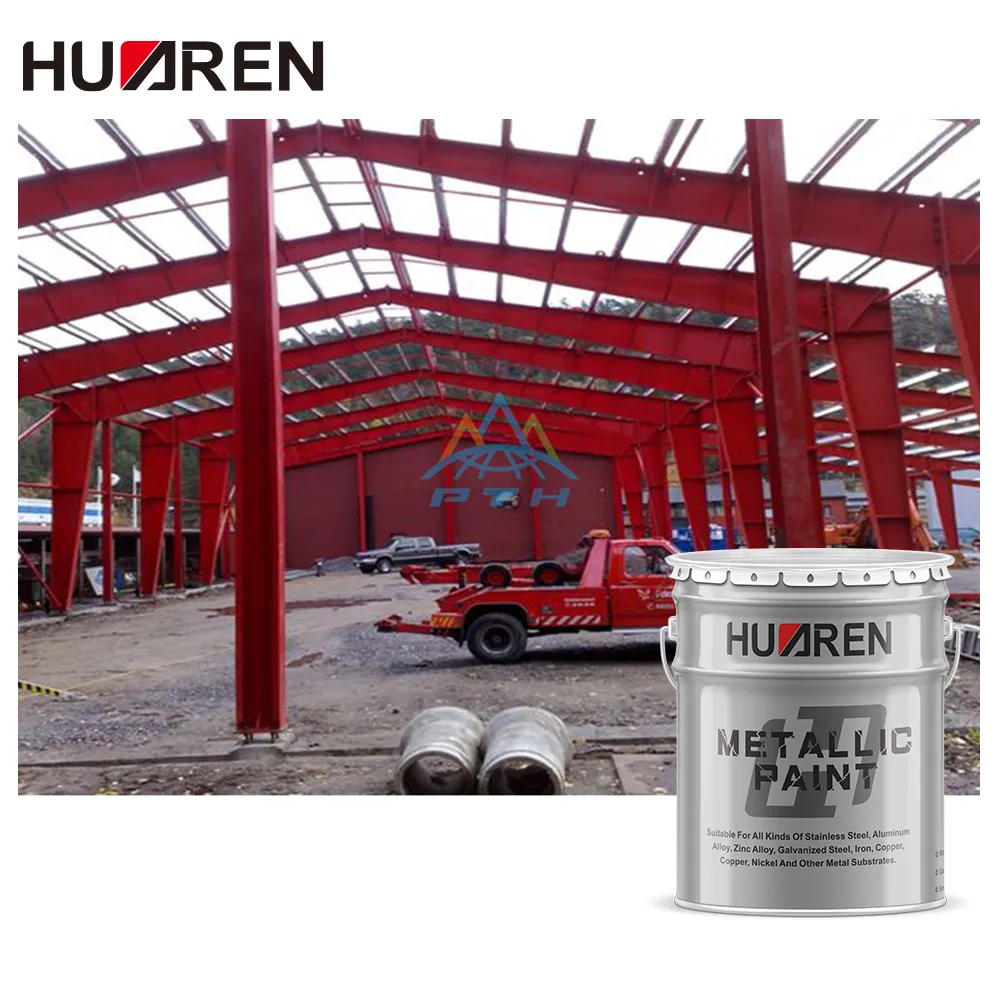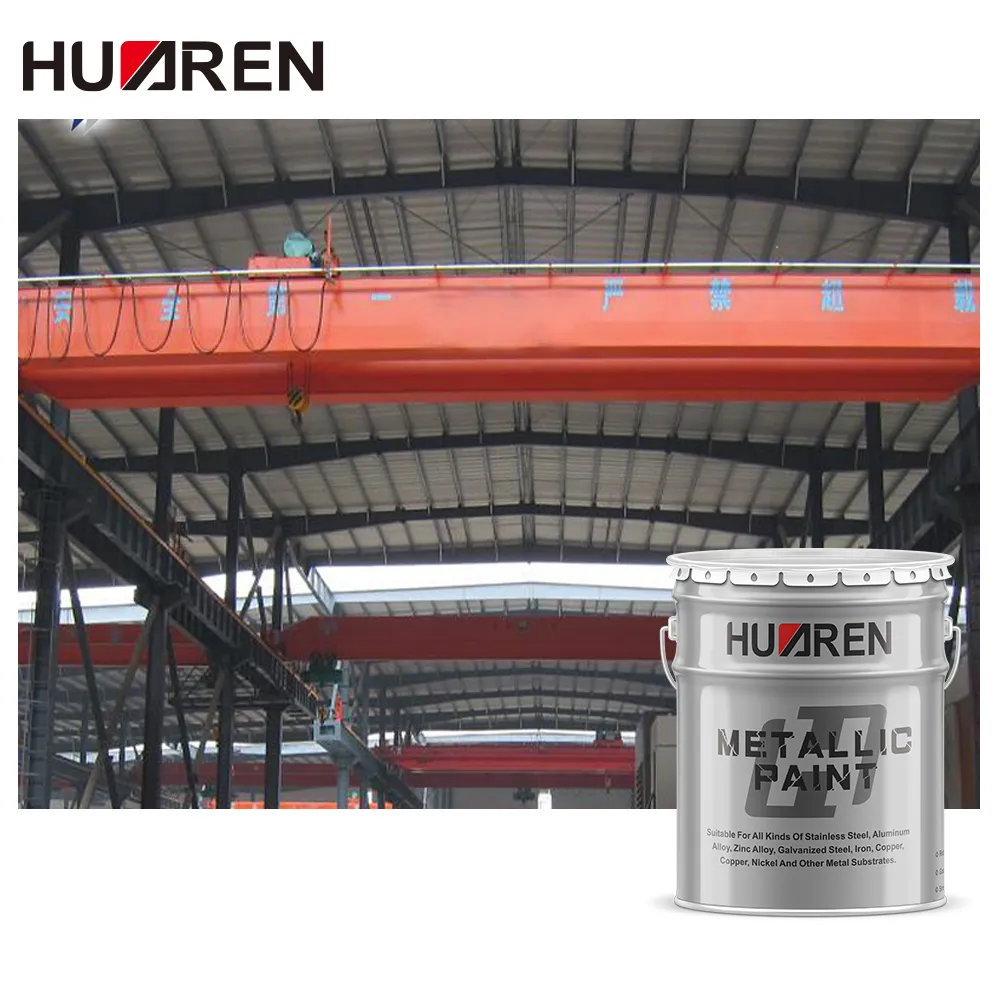Anti-corrosion is the key to the long-term performance and beauty of metal products and structures in various harsh environments. Anti-corrosion coatings are an important barrier to protect these materials from oxidation, corrosion and other environmental damage. As a common coating, epoxy primer is widely used in various fields due to its excellent adhesion and durability.
So, can epoxy primer prevent corrosion? Is it a kind of anti-corrosion paint? This article will explore in detail the anti-corrosion properties of epoxy primers and their position in the anti-corrosion system.

What is epoxy primer?
Epoxy primer is a coating based on epoxy resin, which forms a strong protective film by chemically reacting with a curing agent. Epoxy primers usually consist of two parts: epoxy resin and curing agent. Before use, these two parts need to be mixed in a specific ratio, and after reaction, a coating with excellent physical and chemical properties is formed.
1. What are the characteristics of epoxy resin?
Epoxy resin is a thermosetting polymer known for its high strength, chemical resistance and excellent adhesion. These properties make epoxy resin a widely used material in the coatings industry. The molecular structure of epoxy resin allows it to form a tightly cross-linked network structure after curing, which gives epoxy primers excellent wear resistance and corrosion resistance.
2. What is the role of the curing agent?
The curing agent is an indispensable part of the epoxy primer formula. Its role is to cross-link with the epoxy resin to form a strong and durable coating. Common curing agents include amines, amides and phenolic compounds. Different types of curing agents affect the final performance of epoxy primers, such as curing time, chemical resistance and mechanical strength.

Can epoxy primers prevent corrosion?
To answer the question "Can epoxy primers prevent corrosion?", we need to understand the anti-corrosion principle and performance characteristics of epoxy primers in detail.
Anti-corrosion principle of epoxy primers
The anti-corrosion effect of epoxy primers mainly depends on their strong adhesion and low permeability. The coating formed by epoxy primers after curing can adhere tightly to the metal surface, preventing the penetration of moisture, oxygen and other corrosive media, thereby slowing down or preventing the occurrence of corrosion reactions.
● Shielding effect: The dense coating formed by epoxy primer builds a barrier on the metal surface, isolating direct contact with moisture, oxygen and other corrosive substances. This shielding effect is the main mechanism of epoxy primer anti-corrosion.
● Chemical resistance: Epoxy primer has excellent acid and alkali resistance and chemical corrosion resistance, so it performs well in many corrosive environments. For example, in highly corrosive places such as chemical plants and marine environments, epoxy primers can effectively prevent chemicals from corroding metals.
Actual anti-corrosion effect of epoxy primer
The anti-corrosion effect of epoxy primer has been widely verified in practical applications. It can not only effectively slow down the rust rate of metals, but also further enhance the overall anti-corrosion effect when used in conjunction with other anti-corrosion coatings. The following are some typical anti-corrosion applications of epoxy primer:
● Ship and marine engineering: Epoxy primer is widely used in anti-corrosion coatings for ships and marine structures. It can resist the corrosion of seawater and has good wear resistance and impact resistance.
● Chemical equipment: Since epoxy primer has excellent resistance to acids, alkalis and solvents, it is often used for anti-corrosion protection of tanks, pipelines and reactors in chemical plants.
● Bridges and building structures: In bridges and steel structures, epoxy primer is used as a base coating and used in conjunction with topcoat to form a multi-layer protection system to extend the service life of the structure.

Is epoxy primer a type of anti-corrosion paint?
To clarify whether epoxy primer is a type of anti-corrosion paint, we first need to understand the definition and classification of anti-corrosion paint.
Definition of anti-corrosion paint
Anti-corrosion paint, as the name suggests, is a coating used to protect metals or other materials from corrosion. Anti-corrosion paint delays or prevents the corrosion of materials in the environment by forming a dense protective film or providing chemical protection. Anti-corrosion paint is generally widely used in various industrial and civil fields, including marine, chemical, construction and transportation industries.
Classification of anti-corrosion paint
Anti-corrosion paint can be divided into many types according to its chemical composition, working principle and application environment. Common types of anticorrosive paints include:
● Alkyd anticorrosive paint: Based on alkyd resin, it has good weather resistance and adhesion, and is suitable for the anticorrosion of outdoor steel structures.
● Chlorinated rubber anticorrosive paint: It has excellent chemical resistance and water resistance, and is widely used in the anticorrosion of marine facilities and chemical equipment.
● Polyurethane anticorrosive paint: Known for its excellent wear resistance and weather resistance, it is often used in anticorrosion occasions that require high durability.
● Zinc-rich anticorrosive paint: Rich in zinc powder, it can provide cathodic protection and has excellent anticorrosion effect on steel structures.
● Epoxy anticorrosive paint: Epoxy anticorrosive paint is a coating based on epoxy resin, which has excellent anticorrosion effect and is particularly suitable for industrial facilities and marine environments.
The status of epoxy primer as an anticorrosive paint
Based on the above classification, we can clearly say that epoxy primer is indeed a type of anticorrosive paint. Epoxy primer not only has the adhesion enhancement effect of general primers, but more importantly, it plays a vital protective role in the anticorrosion system.
● An important role in the multi-layer protection system: In many anti-corrosion applications, epoxy primers are used as base coatings to provide initial anti-corrosion protection and enhance adhesion. Other types of topcoats (such as polyurethane topcoats) can be used on top to form a multi-layer protection system. This multi-layer coating not only improves the overall anti-corrosion performance, but also extends the service life of the metal structure.
● Anti-corrosion effect of independent use: In some applications, epoxy primers can even be used alone to provide sufficient anti-corrosion protection. For example, in less harsh environments, epoxy primers can effectively prevent metal corrosion after being treated with appropriate thickness.

Construction process of epoxy primers vs. relationship between anti-corrosion effect
The anti-corrosion effect of epoxy primers is not only related to their material composition, but also closely related to the construction process. The correct construction process can maximize the anti-corrosion performance of epoxy primers.
Surface treatment
Surface treatment is the first step to ensure the anti-corrosion effect of epoxy primers. Before applying epoxy primers, the metal surface must be thoroughly cleaned to remove rust, grease and other contaminants. Common surface treatment methods include sandblasting, grinding and chemical cleaning.
● Sandblasting: Sandblasting can effectively remove surface rust and form a moderate roughness on the metal surface, increasing the adhesion of epoxy primer.
● Chemical cleaning: Chemical cleaning is an effective means for some pollutants that are difficult to remove mechanically. The surface should be fully dried after cleaning to avoid residual chemicals affecting the coating effect.
Primer ratio and mixing
Epoxy primer is usually a two-component coating and needs to be mixed according to the ratio required by the instructions before use. The correct mixing ratio and sufficient stirring are important steps to ensure the performance of the coating.
● Curing agent ratio: The amount of curing agent added must be strictly in accordance with the product instructions. Too much or too little will affect the curing speed and final performance of the coating.
● Stirring evenly: The mixed primer needs to be fully stirred to ensure that the epoxy resin and curing agent are completely mixed to ensure the uniformity and adhesion of the coating.
Brushing method
Epoxy primer can be applied by brushing, rolling or spraying. The selection of a suitable construction method depends on the coating area, coating thickness requirements and construction environment.
● Brushing: Suitable for small areas or areas that require delicate operations. The advantage of brushing is that it is flexible to operate, but the efficiency is low.
● Rolling: Suitable for large-area construction. Rolling efficiency is high, but care should be taken to avoid bubbles and sagging.
● Spraying: Spraying is one of the most commonly used construction methods for epoxy primers. It can form a uniform coating and is especially suitable for coating large areas and complex structures.
Coating thickness
The anti-corrosion effect of epoxy primers is closely related to the coating thickness. Generally, the coating thickness of epoxy primers should be within the specified range, which should ensure sufficient protection and avoid cracking or decreased adhesion caused by excessive thickness.

